|
By: Rachel Bulgrien Only a few days ago I heard the words. Pointing at the screen, she said, “Here’s your baby, but I’m so sorry, there is no heartbeat.” In my gut I had already known. This was my third time after all; I knew the signs. It was eerily similar to the first but with one BIG difference. The most common emotion we associate with miscarriage is grief - the horrible, heavy feeling that something precious and irreplaceable has been stolen from us. A piece of ourselves is suddenly missing. Our empty arms ache along with our cramping belly. We weep and we bleed. Our body feels broken right along with our heart. After my first miscarriage in 2008, despite many reassurances and the doctor’s confident words to the contrary, I convinced myself that my unhealthy body betrayed my child, that his death was somehow my fault. After all, I had three living sons. The only thing different this time was my extra weight and the fact that I was still nursing our third child (only 8 months old). In my state of grief, it seemed clear that my body could not support feeding two babies. Why didn’t I wean the baby right away? So guilt heaped on top of the grief. The next year we had another child, our first girl. Due to early onset preeclampsia, she was born at just 26 weeks gestation, weighing only 1 lb, 5 oz. The first three weeks we didn’t know if she would live. This only served to reinforce the notion that my ill health contributed to or even caused the harm to both children. Though our daughter lived, a second miscarriage in 2011 sent me even deeper into guilt. Why could I conceive but not carry to term? Were we acting recklessly by risking another pregnancy that would only end in the death of yet another child? Fear and shame added to grief and guilt. But these thoughts were not ones I could speak out loud. I carried my shame in isolation. It took much research, spiritual counseling, and time (so much time) to work through this false belief that, had I been healthier, those children may have lived, and our daughter would not have suffered such terrifying complications early in life. Though the guilt, shame, and fear are gone 10 years later and have been replaced by forgiveness, healing, and trust, the grief still lingers. Every time a friend, family member, or acquaintance shares her miscarriage story, whenever we take family pictures, the time my husband bought a lovely mother’s necklace for me, there was the old ache, the sadness, the longing. It’s still there. But God always works things out to our good! We welcomed another daughter in 2013 and twin girls in 2014. Seven beautiful, living children and two in the arms of Jesus. We love having a big family! We celebrate every child knowing what a precious gift each one is. But there is more sadness in our story and more guilt and shame because it happened again. This year (2019) my husband and I both turned 40. Our twins are almost five. We have moved out of the baby, toddler, potty training, up-in-the-middle-of-the-night years into teens, tweens, and school-age children. A new and exciting season of life for all of us, living out the life we’d dreamed of as newlyweds. My husband landed his dream job two years ago. In February, we moved into our dream home on our dream property. God provided beyond our wildest imagination! Though still homeschooling the four girls, I decided to go back to school and pursue the Master’s degree I’d been considering for several years. Everything was falling into place.
Then it happened, so unexpectedly. Just six weeks after my birthday - a positive pregnancy test - utter shock and the seeming death (or at least delay) of our future plans, especially mine. Truthfully, we didn’t want any more children. We didn’t want to go back to the baby days. We thought we were much closer to being grandparents than parents of a newborn. Shame returned. We were guilty of not wanting this precious life. We know, truly know, the gift that each life is, but in our selfishness we didn’t want to be responsible for this one. Shock, disappointment, anger at ourselves that we weren’t more careful, frustrated by this change in plans, fearful of what others will think or say behind our backs and even to our faces. “They’re 40. What are they thinking!” “They already have seven. How many more do they want?” “I thought you had that taken care of.” “You ought to know how that happens by now.” But we love children. We’re already raising seven. What’s one more? Forty isn’t so old. We’re financially stable and in better health now. God’s timing is not our timing. His ways are not our ways. We must continue to trust. He will provide again. All the layers of emotion were suddenly present - love, fear, doubt, excitement, pride, anger, uncertainty, confidence - so many opposites. How can one person feel such polar opposites at the same time? As the weeks went by, the pleasant emotions grew and the unpleasant ones began to fade, but they still lingered quietly in the background. At 11 weeks, 5 days, I was hit with a terrible migraine, the head splitting, light sensitivity, nauseating kind. The same kind I get with big hormonal shifts. The kind I had just a few months ago that was the first indication of pregnancy. The next day brought light spotting, but I still had hope. I rationalized. Spotting isn’t that uncommon in early pregnancy. I’ve had it before, and things were OK. But the next day, 12 weeks exactly, came with more blood, more than just spotting. A trip to the ER and the dreaded words. “Here’s your baby, but I’m so sorry, there is no heartbeat.” Tears and GRIEF, that tightness in my chest, holding my breath to keep back the sobs, not wanting to embarrass the poor ultrasound tech. After all, I had known before she said it. Then SHAME. I hadn’t wanted this child. I didn’t receive the news of his existence with joy or love him right away. As I arrived home to share the news with the other children, there was also a great sense of RELIEF. We could go back to plan A; the next four years just became far less complicated. I can enjoy a glass of wine with my girlfriends as we celebrate turning 40 together this fall. JUDGMENT. What kind of mother feels relief when her child dies and then thinks, well at least I can do the things *I* want. GUILT, again. This time it’s different. The grief is tempered by relief. I don’t know HOW to feel about that. That afternoon passed quietly. Still in shock, we shared the news with family and close friends one by one. In the evening, when the quiet house felt so oppressive, I went out to the lakeshore to pray, to cry, to ask forgiveness, to feel all the things again, to question God. Why? Why does He give what we don’t think we want, then take it away when we realize He’s right and we do want it? What was the point of this three-month rollercoaster? Questions unanswered, emotions raw, I tried to sleep. The contractions began at 3:30 a.m. They brought vomiting, diarrhea, blood, indistinguishable masses of tissue, clots, tears, groans. I spent all day in labor moving between recliner and toilet. I shared a small part of my experience on Facebook, grieving my child and grieving for all the other mothers who suffer this same loss, this same pain. The messages poured in - prayers, offers of help, sharing our grief, thank you messages for our courage and openness, other women sharing their story - human connection. And that’s the gift - Human Connection. When we share our stories and our true emotions, we find out we’re not alone. Human beings are created to live in relationship. If we hide our unpleasant emotions from one another, we hide a piece of ourselves, we cannot be truly known by others, and we keep ourselves from the human connections that help us heal. We all have ugly parts that we think cannot be loved. Nothing is further from the truth. In recent years I’ve learned the importance of sharing unpleasant emotions. When we say them out loud to another human being, telling it like it is, that's when healing begins to happen. We learn to navigate the unpleasant together. We move THROUGH the pain, shame, guilt, judgement, and grief instead of avoiding, covering up, pushing down, hiding, and isolating ourselves. Our suffering becomes a gift to others, an invitation for them to share their hurts, or to simply stand with us in the brokenness of our shared humanity. This child, our tenth, the third that we will not meet until heaven, the one we didn’t want at first, this child has touched so many lives. His existence forced us to examine those old, unpleasant feelings, forced us to relive them at a time that would bring healing to our family and comfort to so many others. God brought him at just the right moment and numbered his days perfectly. We are so grateful for that gift. Rachel is a wife, mother, and women’s transformational mentor working on a master’s degree in deaconess studies. She’s passionate about helping women uncover their unique identity in Christ while confronting their shame and self-judgement in exchange for human connection and genuine relationship. Rachel loves Jesus, her huge family, coffee, dark chocolate, CliftonStrengths, essential oils, and barefoot walks.
3 Comments
By: Emma Moseley Recently, I had my second miscarriage in five months. Numb is the only word that comes to mind when I read that sentence. My first miscarriage was on March 16 of this year. We had conceived our little angel during our honeymoon. We decided to tell my son, who is 9, that he was going to be a big brother. Our journey to becoming a happy family of three, soon to be four, was going just as planned. When I had my oldest son I was young, confused, and got into an unhealthy marriage because I thought it was the right thing to do. Now I was married for love, older and completely head over heels at the thought of becoming a mother of two and seeing my new husband become a father. I told myself things would be different. I questioned that pregnancy so many times. I wasn’t sick, wasn’t tired. It just did not feel like my first pregnancy. When I saw the blood, my heart sunk because I knew. What I didn’t know was that the process to figure out if our baby would survive would take more than a week and a half. It seemed like an eternity. I’ve never known a greater sadness or fear until that time. The night before our ultrasound I didn’t sleep the entire night. We didn’t say anything to each other on the ride to the hospital. When we looked up at the ultrasound screen and saw an empty womb, the silence was stifling. The next couple weeks were a blur. I spent my days at home with my husband and son, went back to work, and took care of my company, but I was just going through the motions. Life was moving on, but my body felt empty, my heart was sick, and I felt like I had never left the ultrasound room. I missed my baby. It’s interesting how different people in your life act after they find out about a miscarriage. I was brutally honest about what had happened to anyone and everyone. The thought of keeping our child a secret made me sick to my stomach. So many people would say, “ you can always try again,” “you are so young,” “everything happens as it should.” The thought of trying again for another baby had not even occurred to me. How could I love another baby while I was grieving the one I just lost? I’m pretty sure I read everything available on Google about miscarriage: how to cope, what caused it, the chances of having another miscarriage. It wasn’t until I stopped driving myself crazy and gave into my grief that I felt like I was beginning to heal. That’s when we ended up pregnant again. I was shocked, I had just dealt with the death of two family members the week prior to the positive pregnancy test, so the last thing on my mind was another pregnancy. The day I saw the two lines, my husband asked if I was OK probably 100 times. That night we cried together and gave into the excitement of having a sweet baby on the way. A week and a half, again. That’s what it took to lose our second baby. A week and a half of dreaming of new memories, planning on nursery decorations, thinking of baby names. It was taken away so quickly and hurt just as bad as the first. I am the 1-2 percent of women with recurrent miscarriages. I’m not sure if it will ever get easier, but I do know how grateful I am to already have had the chance to become a mother of a beautiful boy and now to two sweet angels. I know someday it will get easier, but today is not that day. My name is Emma Moseley, I am a singer-songwriter and business owner. Also a mother to a beautiful 9 year old and wife to an amazing man. Emma Moseley is a singer-songwriter and business owner. She is also a mother to a beautiful 9 year old and wife to an amazing man.
By: Rebekah Slonim “I don’t believe that grief passes away. It has its time and place forever. More time is added to it; it becomes a story within a story. But grief and griever alike endure.” —Wendell Berry[1] I think about my two pregnancy losses every single day—the miscarriage three days after Christmas in my first year of marriage, the ectopic pregnancy on a beautiful fall day in my second year of marriage. Time, many supportive conversations with friends and family members, and a living baby have eased the pain and ache. The miscarriages no longer actively hurt me. But the grief remains. After my first miscarriage, I struggled mightily with the idea of “moving on.” The perception I found lurking in my own mind and in some comments that people made to me was that, in order to grieve in a healthy manner, I had to “move on.” “Moving on” seemed to suggest “moving away”—to bury and ignore my horrible sense of emptiness, both physical and emotional. Eventually I opted for the phrase “moving forward.” I came across the above Wendell Berry quotation and began to envision my grief as a chapter in the book of my life. I would not always be in the chapter of crying in the shower, sleeping in late to avoid the yearning, cringing at every pregnant woman in the grocery store, trying to change the topic if anyone was talking about baby-rearing. Still, that chapter would always be part of the book. It was essential to the story. It would never be removed. Grief shapes my life. As a teenager, I remember rebelling against the idea in L. M. Montgomery’s “Rilla of Ingleside” that there would be “a little patient ache . . . in [Rilla’s] heart until she died” after her brother Walter was killed in battle in World War I.[2] Yet now I live with a similar patient ache, most of the time submerged and not really a part of all the thoughts flitting through my mind about sleep training and dishes and my work as a copyeditor. Still, that grief shapes my life. It’s always in the background, and it comes to the surface every now and then. A sense of loss attends me when I mark down my son’s family tree in his baby book, feeling like he is not really the first or only child, but knowing that in practice he is. The patient ache returns when I remember, acutely, how painful it is to see a dark expanse on a ultrasound screen rather than a tiny body with a tinier, pulsating heart. And every single time someone asks me how many children I have, or if I have children, I wince just a little. Barbara Crooker writes, “How many children do you have? / Two, we answer, thinking three, / Or three, we answer, thinking four; / They are always with us.”[3] And so I answer one, thinking three. Grief reflects a true sense of the way the world is. To live with a sense of loss is not improper. We shouldn’t try to scrub it away. We live in a world full of loss. To have a particular loss imprinted upon us enables us to understand ourselves, other people, and the world around us better. While in my grief I initially closed in upon myself, I also found that—gradually—the world began to open up to me in a new way. Before my miscarriages, I had never had a great loss—the kind of loss that turns your life upside-down, makes you confront your dreams and expectations, and makes you wonder what happiness and contentment will look like. But great losses are a near-universal human experience. Now when a friend or acquaintance talks about any type of loss, I lean in and listen carefully. My pregnancy losses have opened a door into a different kind of experience. I live life differently because of them. And I am grateful to have been molded and transformed by two tiny unborn babies with brief but meaningful lives. Grief gives me gratitude and perspective. As Michelle DuBarry explains, “Grief is exactly as painful as you think it will be, but with time you will learn to love your sadness because of the tiny shoots of joy and gratitude that sprout around it, like new growth on scorched earth.”[4] I do love my sadness. I love how it gently instructs me. It causes me to notice when another woman seems uncomfortable with talking about babies. It helps me to delight more in everyday pleasures. And it is the necessary backdrop to what my son’s life and birth mean to me. The cliché that grief is the price of love is true. I hold onto my grief as a reminder—a sign and symbol of my love. It’s the only way I can love the babies that I lost. My grief is of course not the whole story of my life. It cannot be—that would be wrong and misguided. There are other chapters in my life, other stories being told and yet to be told. Yet I do not wait or wish for it to go away. It has its time and place. I remember it and return to it and learn from it and hold it close. Rebekah Slonim, a 2016 graduate of Hillsdale College, is a freelance copyeditor, proofreader, and indexer. She lives in West Lafayette, Indiana, with her husband and son.
[1] Wendell Berry, Jayber Crow (Berkeley, CA: Counterpoint, 2000), 148. [2] L. M. Montgomery, Rilla of Ingleside (New York: Bantam Books, 1992), 189. [3] Barbara Crooker, “The Lost Children,” Verse-Virtual.com, 2016, https://www.verse-virtual.com/barbara-crooker-2016-march.html. [4] Michelle DuBarry, “When Sturdy Love Is What You Need,” The New York Times, October 19, 2018, https://www.nytimes.com/2018/10/19/style/modern-love-when-sturdy-love-is-what-you-need.html. By: Stephani Francl I've had a couple of bad days in the last week. Days spent mostly in tears or teetering on the edge of tears, fighting to maintain enough normalcy to keep my kids from asking too many questions; nights praying for sleep to come in it's forgetful relief. Today was a good day. I have lots of good days - days where life is normal, and I get to just live. But in this season, some days are really... In the first sentence, I called them "bad days," but I don't think that's quite the right word. The word "bad" can mean lots of things - of poor quality, not to be desired, putrid, not appropriate, unwelcome, naughty, etc. I don't mean I've had bad days in any of those ways. I'm not sure what a more appropriate word would be. Sorrowful? Heavy? Necessary? Hard. I'll just go with hard. From today, a "good" day, I can look back on the hard days and know that they are necessary; I can even be grateful that I've walked them. Imagine losing something of value but never acknowledging the loss. Imagine someone empties your bank account, hacks into your IRA, snatches your life savings, and steals your inheritance, and your response is merely to shrug your shoulders and say, "Que sera, sera." ("What will be, will be.") No one would actually do that. You'd call the police, you'd hunt down the thief, you'd hire lawyers and private investigators if necessary to get back what was rightfully yours. And let's be real, by the time you get all those people involved to help bring justice to your case, you've spent a TON of time dealing with merely the logistics of the situation, let alone the emotional upheaval. I look at the hard days kind of like that. Grief requires an investment of time; it must be dealt with; it must be faced. Those who don't stare it down are somehow not facing the reality of what they've lost. Now, that's not to say that we all deal with grief the same way - far from it! Some need solitude, some need lots of people; some read books, some escape to the outdoors; some carry on with normal life, some need a major change. There is no right way to grieve, though we can often recognize wrong ones when we see them lived out in others. So, some days are hard, but they can be good too. ...which I suppose means I need to revisit my labeling of normal days as "good days." Calling them "good days" implies that the days spent doing the work of grief aren't good. And while I suppose in some ways that's fair to say, I would counter that the days I spent deeply grieving this week were good days, too. Necessary, healing, part of the process, and validating my loss. So I guess I have normal days and hard days, and not good days and bad days. Alone
One of grief's biggest schemes is to make me feel isolated. Feeling alone in what I'm facing is just miserable. I mean, it's true. I don't know anyone else who has lost one twin in-utero at 15 weeks. I have friends who have friends who have gone through something sort of similar at 11 or 20 weeks, but not exactly what I'm facing. And let's be real - I don't want friends of friends to understand me - I want my friends who I already have to understand exactly where I'm at. But they don't, and they can't, and I pray that they never will. Oh God, that no one would ever face this. It's true. My situation is unique in my circle, but so is yours. I don't live your life. I don't carry your burdens. You can tell me about the skeletons in your closet, and you may even let me peek in once or twice, but they live forever in your closet. And I have my own hidden away in mine. The lie grief tries to convince me of is that I'm the only one who has ever experienced this, the only one who has ever felt this way, the only one who has ever faced my future. And I could easily agree and say to grief, "Yes. It's all true - I am alone. No one understands. Poor me." And perhaps I'd be right. But the reality is, if loss hadn't happened, if Thomas (my son, a twin, lost at 15 weeks gestation) was still here, if Chet (my older brother, who died at age 17) had never died, if a few of those skeletons didn't haunt me from my closet, the same would still be true. I would still be the only one who has ever experienced exactly this life, the only one who has ever felt exactly this way, the only one who has ever faced my future. We are all unique, living unique circumstances, facing unique challenges. I can always find someone facing what I think is an easier or harder road than I am. In seasons like this for me, it's helpful to look to the harder roads for perspective. The story behind the song "It is Well with My Soul" comes to mind. Or Corrie Ten Boom (I reference her a lot, but it's because The Hiding Place is in my recently read pile). Or the main guy in Unbroken. Talk about hard roads. Holy cow. Their stories don't negate my own struggles nor minimize my loss. But they do help me to be grateful for the countless blessings I have and provide me perspective to have hope for the future. Because out of crushing circumstances, heartbreak, pain, torture, starvation, and so much more, God brought about beauty in their stories. We still sing "It is Well with My Soul" nearly 150 years after it was written, because the truth therein is so profound. The author of those words would much rather have had his children live, than to have me singing the hymn he wrote today. But, because his children did die, he wrote from the abyss of grief, and those words have carried a legacy of truth to Christians for over a hundred years. Corrie Ten Boom's story challenges me every time I think of it. To forgive her Nazi captors? To (spoiler) build a place for their restoration and healing after the war? That is un.be.lievable. And the main guy from Unbroken - a book, and two movies made of his life that was so difficult. I would have died on the life raft a couple of weeks in, but his will to live, and his forgiveness of his torturer... I don't understand why bad things happen. I really don't understand why bad things happen to good people, though many books have been written, sermons have been given, and wise people have tried to answer that question. I don't get it. But what I do get is that beauty can come even from hurt. On the hard days I faced grief. Normal days are the days of grace in the midst of the hard. And hope springs new every morning. |
Archives
December 2023
Categories
All
|

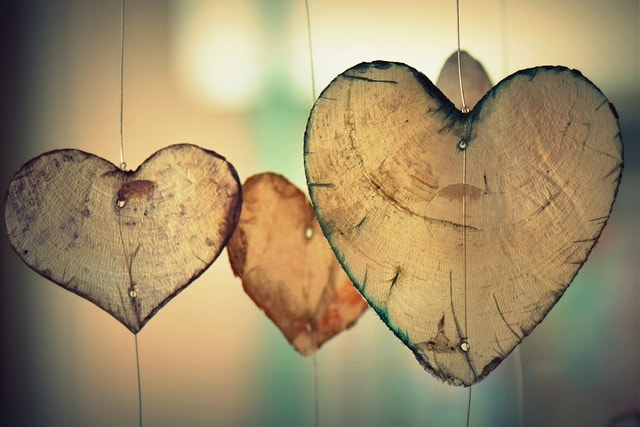
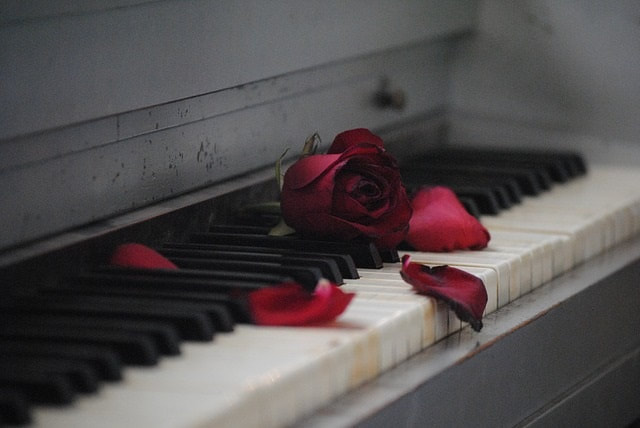
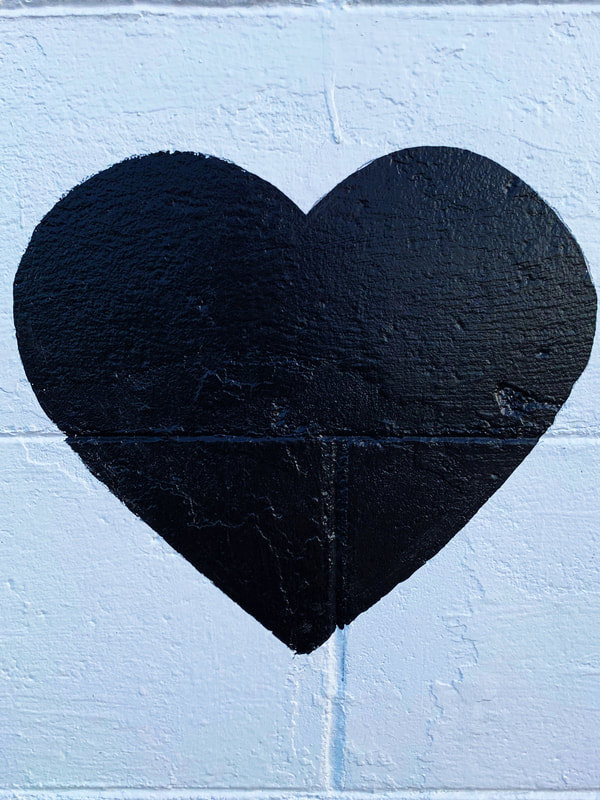
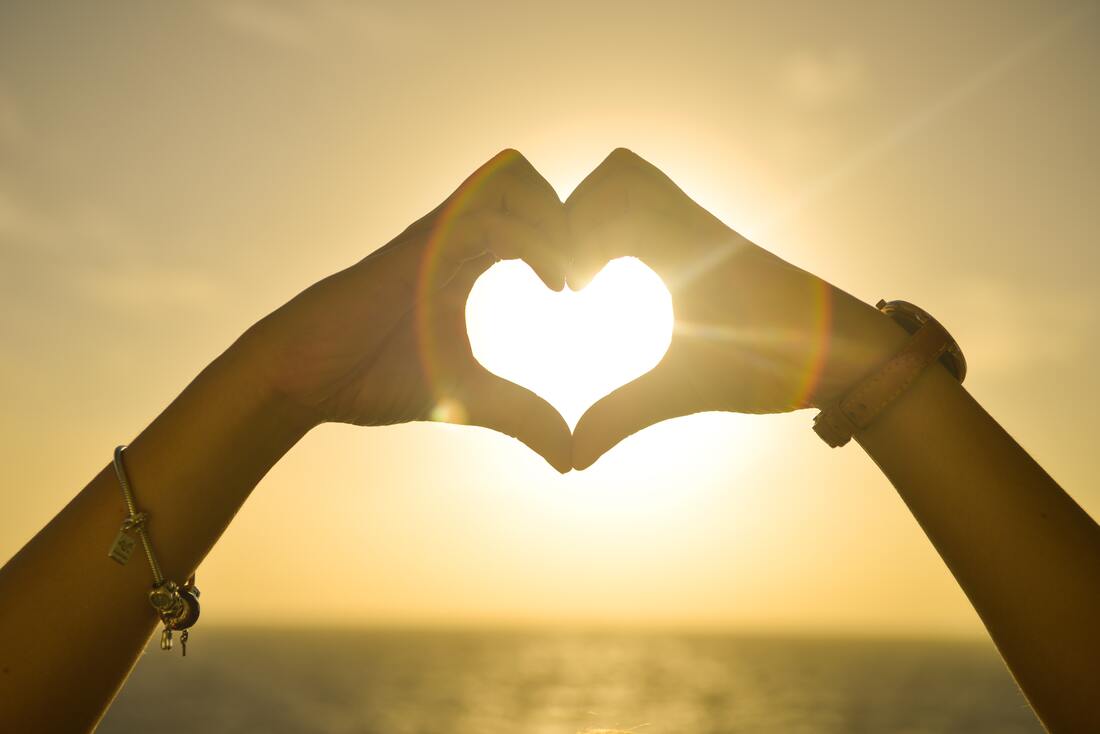
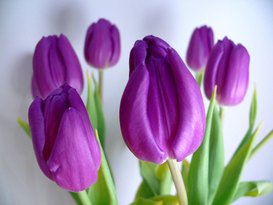
 RSS Feed
RSS Feed